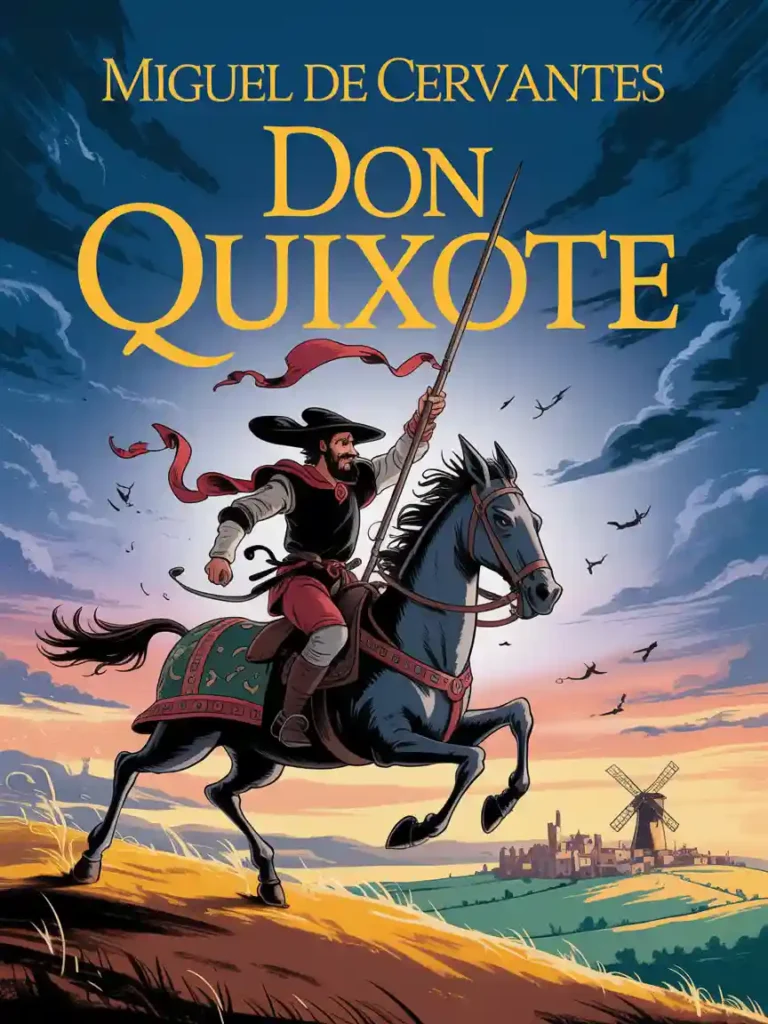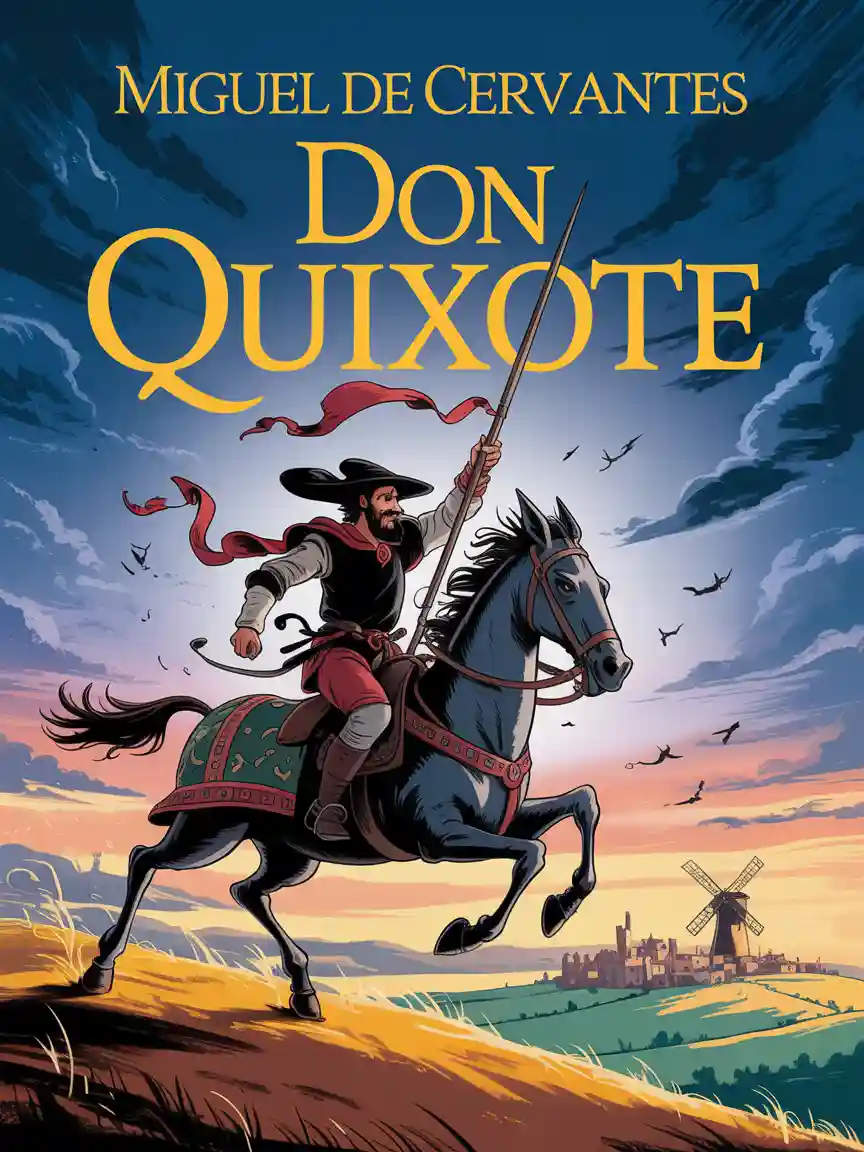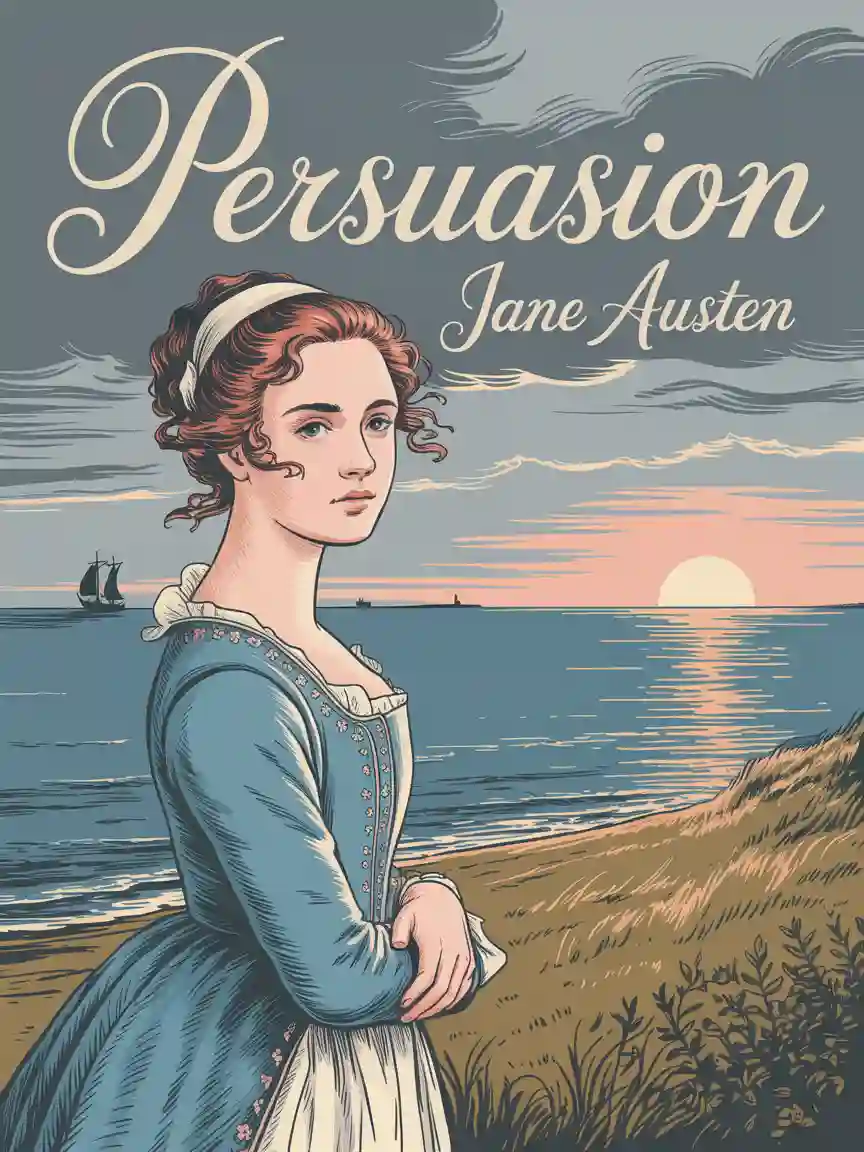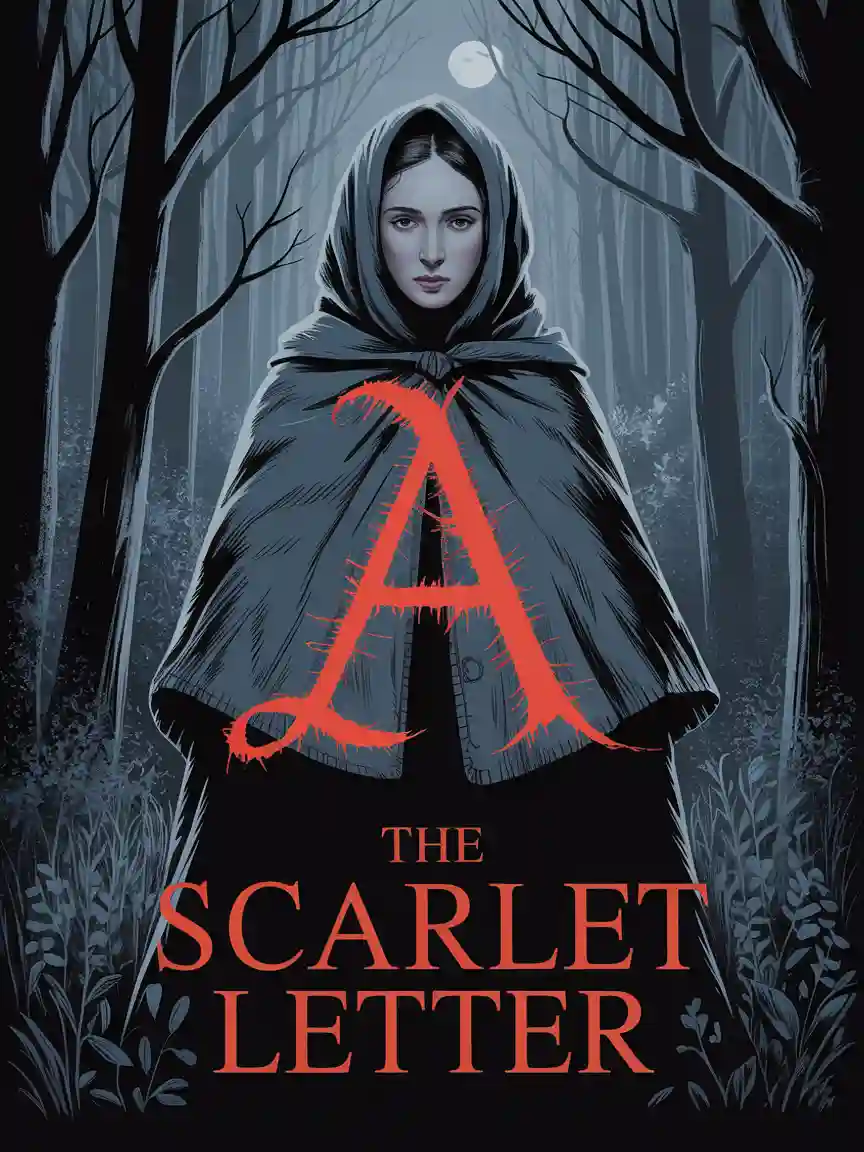CHAPTER 4
OF WHAT HAPPENED TO OUR KNIGHT WHEN HE LEFT THE INN
Day was dawning when Don Quixote quitted the inn, so happy, so gay, so
exhilarated at finding himself now dubbed a knight, that his joy was like to
burst his horse-girths. However, recalling the advice of his host as to the
requisites he ought to carry with him, especially that referring to money and
shirts, he determined to go home and provide himself with all, and also with
a squire, for he reckoned upon securing a farm-labourer, a neighbour of his,
a poor man with a family, but very well qualified for the office of squire to a
knight. With this object he turned his horse’s head towards his village, and
Rocinante, thus reminded of his old quarters, stepped out so briskly that he
hardly seemed to tread the earth.
He had not gone far, when out of a thicket on his right there seemed to
come feeble cries as of some one in distress, and the instant he heard them
he exclaimed, “Thanks be to heaven for the favour it accords me, that it so
soon offers me an opportunity of fulfilling the obligation I have undertaken,
and gathering the fruit of my ambition. These cries, no doubt, come from
some man or woman in want of help, and needing my aid and protection;”
and wheeling, he turned Rocinante in the direction whence the cries seemed
to proceed. He had gone but a few paces into the wood, when he saw a
mare tied to an oak, and tied to another, and stripped from the waist up-
wards, a youth of about fifteen years of age, from whom the cries came. Nor
were they without cause, for a lusty farmer was flogging him with a belt and
following up every blow with scoldings and commands, repeating, “Your
mouth shut and your eyes open!” while the youth made answer, “I won’t do
it again, master mine; by God’s passion I won’t do it again, and I’ll take
more care of the flock another time.”
Seeing what was going on, Don Quixote said in an angry voice, “Dis-
courteous knight, it ill becomes you to assail one who cannot defend him-
self; mount your steed and take your lance” (for there was a lance leaning
against the oak to which the mare was tied), “and I will make you know that
you are behaving as a coward.” The farmer, seeing before him this figure in
full armour brandishing a lance over his head, gave himself up for dead, and
made answer meekly, “Sir Knight, this youth that I am chastising is my ser-
vant, employed by me to watch a flock of sheep that I have hard by, and he
is so careless that I lose one every day, and when I punish him for his care-
lessness and knavery he says I do it out of niggardliness, to escape paying
him the wages I owe him, and before God, and on my soul, he lies.”
“Lies before me, base clown!” said Don Quixote. “By the sun that shines
on us I have a mind to run you through with this lance. Pay him at once
without another word; if not, by the God that rules us I will make an end of
you, and annihilate you on the spot; release him instantly.”
The farmer hung his head, and without a word untied his servant, of
whom Don Quixote asked how much his master owed him.
He replied, nine months at seven reals a month. Don Quixote added it up,
found that it came to sixty-three reals, and told the farmer to pay it down
immediately, if he did not want to die for it.
The trembling clown replied that as he lived and by the oath he had
sworn (though he had not sworn any) it was not so much; for there were to
be taken into account and deducted three pairs of shoes he had given him,
and a real for two blood-lettings when he was sick.
“All that is very well,” said Don Quixote; “but let the shoes and the
blood-lettings stand as a setoff against the blows you have given him with-
out any cause; for if he spoiled the leather of the shoes you paid for, you
have damaged that of his body, and if the barber took blood from him when
he was sick, you have drawn it when he was sound; so on that score he
owes you nothing.”
“The difficulty is, Sir Knight, that I have no money here; let Andres come
home with me, and I will pay him all, real by real.”
“I go with him!” said the youth. “Nay, God forbid! No, senor, not for the
world; for once alone with me, he would ray me like a Saint Bartholomew.”
“He will do nothing of the kind,” said Don Quixote; “I have only to com-
mand, and he will obey me; and as he has sworn to me by the order of
knighthood which he has received, I leave him free, and I guarantee the
payment.”
“Consider what you are saying, senor,” said the youth; “this master of
mine is not a knight, nor has he received any order of knighthood; for he is
Juan Haldudo the Rich, of Quintanar.”
“That matters little,” replied Don Quixote; “there may be Haldudos
knights; moreover, everyone is the son of his works.”
“That is true,” said Andres; “but this master of mine—of what works is
he the son, when he refuses me the wages of my sweat and labour?”
“I do not refuse, brother Andres,” said the farmer, “be good enough to
come along with me, and I swear by all the orders of knighthood there are
in the world to pay you as I have agreed, real by real, and perfumed.”
“For the perfumery I excuse you,” said Don Quixote; “give it to him in
reals, and I shall be satisfied; and see that you do as you have sworn; if not,
by the same oath I swear to come back and hunt you out and punish you;
and I shall find you though you should lie closer than a lizard. And if you
desire to know who it is lays this command upon you, that you be more
firmly bound to obey it, know that I am the valorous Don Quixote of La
Mancha, the undoer of wrongs and injustices; and so, God be with you, and
keep in mind what you have promised and sworn under those penalties that
have been already declared to you.”
So saying, he gave Rocinante the spur and was soon out of reach. The
farmer followed him with his eyes, and when he saw that he had cleared the
wood and was no longer in sight, he turned to his boy Andres, and said,
“Come here, my son, I want to pay you what I owe you, as that undoer of
wrongs has commanded me.”
“My oath on it,” said Andres, “your worship will be well advised to obey
the command of that good knight—may he live a thousand years—for, as
he is a valiant and just judge, by Roque, if you do not pay me, he will come
back and do as he said.”
“My oath on it, too,” said the farmer; “but as I have a strong affection for
you, I want to add to the debt in order to add to the payment;” and seizing
him by the arm, he tied him up again, and gave him such a flogging that he
left him for dead.
“Now, Master Andres,” said the farmer, “call on the undoer of wrongs;
you will find he won’t undo that, though I am not sure that I have quite done
with you, for I have a good mind to flay you alive.” But at last he untied
him, and gave him leave to go look for his judge in order to put the sentence
pronounced into execution.
Andres went off rather down in the mouth, swearing he would go to look
for the valiant Don Quixote of La Mancha and tell him exactly what had
happened, and that all would have to be repaid him sevenfold; but for all
that, he went off weeping, while his master stood laughing.
Thus did the valiant Don Quixote right that wrong, and, thoroughly satis-
fied with what had taken place, as he considered he had made a very happy
and noble beginning with his knighthood, he took the road towards his vil-
lage in perfect self-content, saying in a low voice, “Well mayest thou this
day call thyself fortunate above all on earth, O Dulcinea del Toboso, fairest
of the fair! since it has fallen to thy lot to hold subject and submissive to thy
full will and pleasure a knight so renowned as is and will be Don Quixote of
La Mancha, who, as all the world knows, yesterday received the order of
knighthood, and hath to-day righted the greatest wrong and grievance that
ever injustice conceived and cruelty perpetrated: who hath to-day plucked
the rod from the hand of yonder ruthless oppressor so wantonly lashing that
tender child.”
He now came to a road branching in four directions, and immediately he
was reminded of those cross-roads where knights-errant used to stop to con-
sider which road they should take. In imitation of them he halted for a
while, and after having deeply considered it, he gave Rocinante his head,
submitting his own will to that of his hack, who followed out his first inten-
tion, which was to make straight for his own stable. After he had gone
about two miles Don Quixote perceived a large party of people, who, as af-
terwards appeared, were some Toledo traders, on their way to buy silk at
Murcia. There were six of them coming along under their sunshades, with
four servants mounted, and three muleteers on foot. Scarcely had Don
Quixote descried them when the fancy possessed him that this must be
some new adventure; and to help him to imitate as far as he could those pas-
sages he had read of in his books, here seemed to come one made on pur-
pose, which he resolved to attempt. So with a lofty bearing and determina-
tion he fixed himself firmly in his stirrups, got his lance ready, brought his
buckler before his breast, and planting himself in the middle of the road,
stood waiting the approach of these knights-errant, for such he now consid-
ered and held them to be; and when they had come near enough to see and
hear, he exclaimed with a haughty gesture, “All the world stand, unless all
the world confess that in all the world there is no maiden fairer than the
Empress of La Mancha, the peerless Dulcinea del Toboso.”
The traders halted at the sound of this language and the sight of the
strange figure that uttered it, and from both figure and language at once
guessed the craze of their owner; they wished, however, to learn quietly
what was the object of this confession that was demanded of them, and one
of them, who was rather fond of a joke and was very sharp-witted, said to
him, “Sir Knight, we do not know who this good lady is that you speak of;
show her to us, for, if she be of such beauty as you suggest, with all our
hearts and without any pressure we will confess the truth that is on your
part required of us.”
“If I were to show her to you,” replied Don Quixote, “what merit would
you have in confessing a truth so manifest? The essential point is that with-
out seeing her you must believe, confess, affirm, swear, and defend it; else
ye have to do with me in battle, ill-conditioned, arrogant rabble that ye are;
and come ye on, one by one as the order of knighthood requires, or all to-
gether as is the custom and vile usage of your breed, here do I bide and
await you relying on the justice of the cause I maintain.”
“Sir Knight,” replied the trader, “I entreat your worship in the name of
this present company of princes, that, to save us from charging our con-
sciences with the confession of a thing we have never seen or heard of, and
one moreover so much to the prejudice of the Empresses and Queens of the
Alcarria and Estremadura, your worship will be pleased to show us some
portrait of this lady, though it be no bigger than a grain of wheat; for by the
thread one gets at the ball, and in this way we shall be satisfied and easy,
and you will be content and pleased; nay, I believe we are already so far
agreed with you that even though her portrait should show her blind of one
eye, and distilling vermilion and sulphur from the other, we would never-
theless, to gratify your worship, say all in her favour that you desire.”
“She distils nothing of the kind, vile rabble,” said Don Quixote, burning
with rage, “nothing of the kind, I say, only ambergris and civet in cotton;
nor is she one-eyed or humpbacked, but straighter than a Guadarrama spin-
dle: but ye must pay for the blasphemy ye have uttered against beauty like
that of my lady.”
And so saying, he charged with levelled lance against the one who had
spoken, with such fury and fierceness that, if luck had not contrived that
Rocinante should stumble midway and come down, it would have gone
hard with the rash trader. Down went Rocinante, and over went his master,
rolling along the ground for some distance; and when he tried to rise he was
unable, so encumbered was he with lance, buckler, spurs, helmet, and the
weight of his old armour; and all the while he was struggling to get up he
kept saying, “Fly not, cowards and caitiffs! stay, for not by my fault, but my
horse’s, am I stretched here.”
One of the muleteers in attendance, who could not have had much good
nature in him, hearing the poor prostrate man blustering in this style, was
unable to refrain from giving him an answer on his ribs; and coming up to
him he seized his lance, and having broken it in pieces, with one of them he
began so to belabour our Don Quixote that, notwithstanding and in spite of
his armour, he milled him like a measure of wheat. His masters called out
not to lay on so hard and to leave him alone, but the muleteers blood was
up, and he did not care to drop the game until he had vented the rest of his
wrath, and gathering up the remaining fragments of the lance he finished
with a discharge upon the unhappy victim, who all through the storm of
sticks that rained on him never ceased threatening heaven, and earth, and
the brigands, for such they seemed to him. At last the muleteer was tired,
and the traders continued their journey, taking with them matter for talk
about the poor fellow who had been cudgelled. He when he found himself
alone made another effort to rise; but if he was unable when whole and
sound, how was he to rise after having been thrashed and well-nigh
knocked to pieces? And yet he esteemed himself fortunate, as it seemed to
him that this was a regular knight-errant’s mishap, and entirely, he consid-
ered, the fault of his horse. However, battered in body as he was, to rise was
beyond his power.





